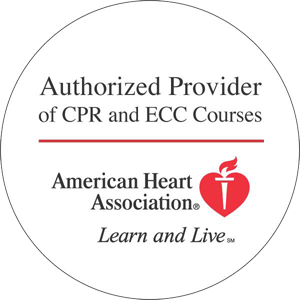For those with seasonal allergies, it can be difficult to deal with the sneezing, stuffiness, watery eyes, itchy throats and more that come with the condition. The discomfort and inconvenience caused by these symptoms can be more than bothersome, often impacting daily activities, productivity, and overall quality of life. Even though seasonal allergies are quite common, their effects go beyond physical discomfort and can influence various aspects of health and well-being. In this blog, we’ll look at the connection between allergies, inflammation and heart health.

How Seasonal Allergies Affect Inflammation and Heart Health
Allergies do in fact have a connection with inflammation in the body and overall heart health. There have been numerous studies that have highlighted the relationship between seasonal allergies, inflammation markers, and cardiovascular outcomes. Understanding this connection is important for individuals seeking to manage their allergies effectively while prioritizing their heart health.
As described in an article from CNN, ‘While prior research has shown a connection between having allergies and an increased risk of cardiovascular disease, “the question is why?” said pulmonologist Dr. Raj Dasgupta, an assistant professor of clinical medicine at the Keck School of Medicine at the University of Southern California.
“We can’t really show causality, but science does show it’s connected to pro-inflammatory mediators, things that trigger inflammation in the body,” said Dasputa, who was not involved in the study.’
Histamines, for example, can increase blood flow to the affected area when an allergen strikes, prompting the immune system to release antibodies, which causes inflammation. This explains why numerous allergy medications are antihistamines, which are made to counter the inflammatory reaction. While inflammation serves as the body’s defense mechanism against pathogens, an excessively active or prolonged response is a root cause of numerous chronic ailments, including diabetes, hypertension, and heart disease.
Source: CNN Allergies, Asthma Linked to Heart Disease, Study Says.
Caring for Your Heart While Managing Allergies
Allergies alone are not a source of heart disease, and there are many other contributors, including diabetes, obesity, smoking, a lack of exercise, and a family history of cardiovascular issues. There are things you can do to help. Understanding the connection between allergies and heart health is the first step in taking action to manage allergies properly to maintain heart health. Some practical tips that can help reduce inflammation and lessen the impact of seasonal allergies include: lifestyle adjustments such as minimizing exposure to allergens, maintaining a clean indoor environment, and practicing stress-reduction techniques can make a significant difference. Additionally, dietary considerations, including consuming anti-inflammatory foods, staying hydrated, and consuming heart-healthy foods, can play a crucial role in overall health. You may also want to explore potential treatment options with a healthcare provider, such as allergy medications or immunotherapy, which can provide further relief and support in managing allergies for optimal heart health.
Learn More: Four Things to Know About High Blood Pressure
Protect the hearts of those around you by taking a CPR/AED and first aid course at one of HeartCert CPR’s nationwide locations. Register for a course today.
HeartCert is your trusted training partner for CPR, ACLS, PALS, EMR, First Aid, CNA, IV, EKG and more, throughout the United States.
Courses include CPR/AED/First Aid, Basic Life Support (BLS), Advanced Cardiac Life Support (ACLS), Pediatric Advanced Life Support (PALS), Certified Nursing Assistant training, IV training, EKG training, babysitter basics and more. Courses and certifications from both the American Heart Association and American Red Cross are available.We offer virtual courses and certifications, in all 50 states as well as in-person classes at our headquarters, HeartCert CPR Eagan and major cities in Iowa, Illinois, Georgia, Michigan, Minnesota, Mississippi, Nebraska, Pennsylvania, Texas and Wisconsin.








